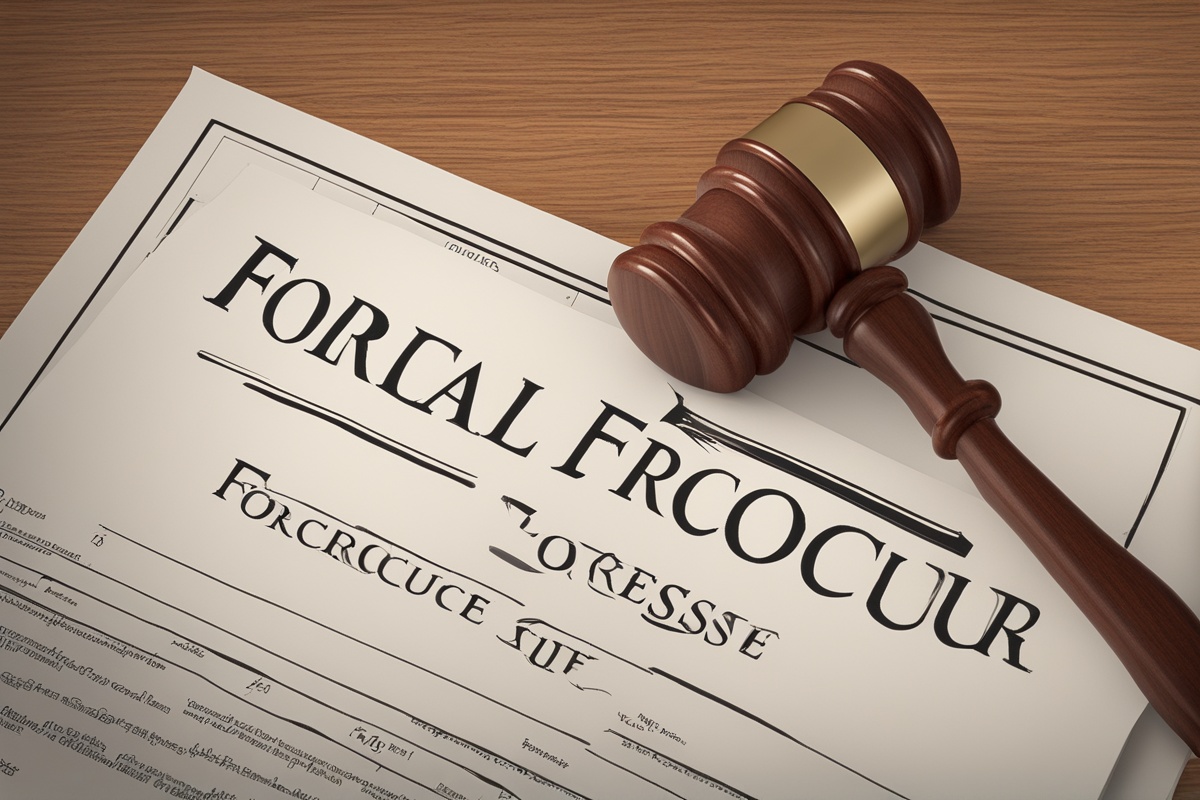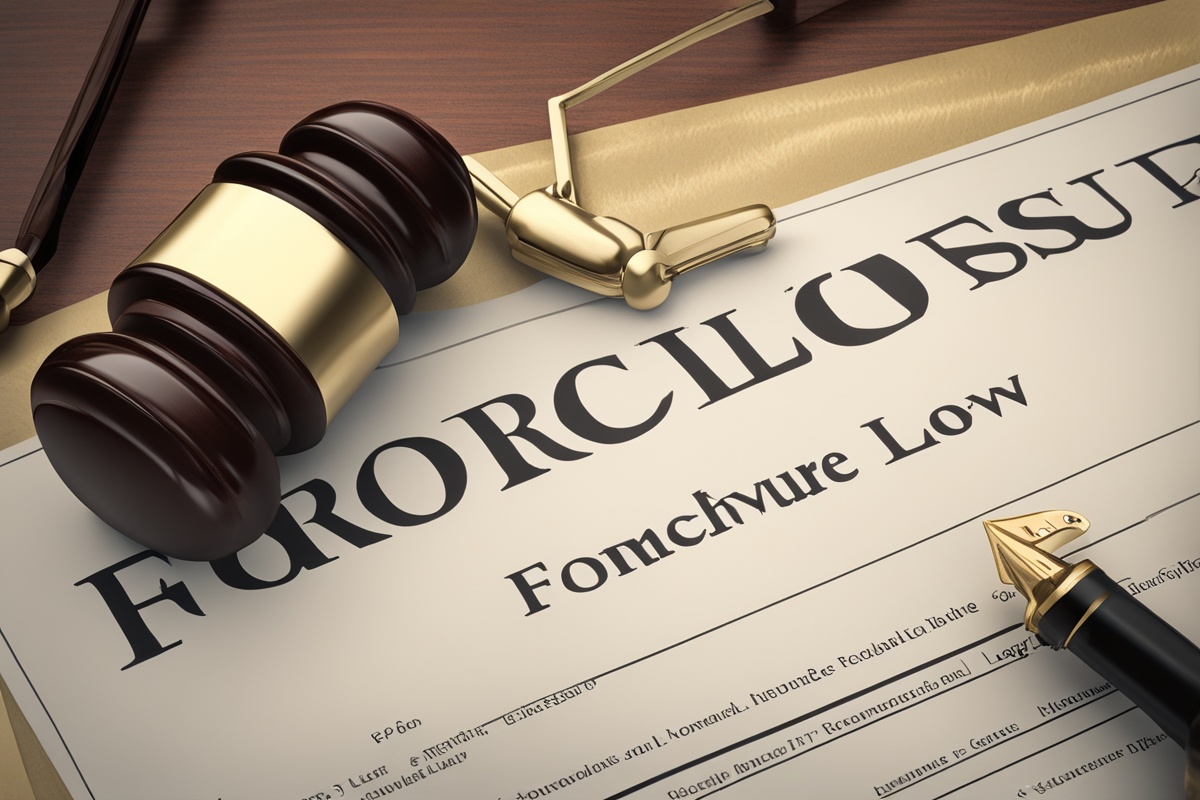Navigating the world of real estate can be a rewarding journey, but it comes with challenges—none more daunting than the threat of foreclosure. If you’re a homeowner staring down the possibility of losing your property, the stress can be overwhelming. Foreclosure isn’t just a financial setback; it’s an emotional burden that can upend your life. But here’s the good news: you’re not powerless. There are legal options and strategies within the real estate market that can help you fight back, protect your home, and regain control. In this comprehensive guide, I’ll walk you through actionable steps and legal avenues available to homeowners facing foreclosure. Whether you’re looking to negotiate with lenders or explore government programs, I’ve got you covered with practical tips and insights grounded in real-world property law expertise. Let’s dive into how you can safeguard your piece of the housing market.
Understanding Foreclosure: The Basics in Real Estate
Before we explore legal options, let’s break down what foreclosure means in the context of real estate. foreclosure is a legal process where a lender attempts to recover the balance of a loan from a borrower who has stopped making payments by forcing the sale of the property used as collateral. This process varies by state, with some following a judicial process (requiring court involvement) and others using a non-judicial process based on a deed of trust (Smith, 2020). Understanding your state’s specific laws is crucial because it dictates the timeline and your rights as a homeowner. For instance, judicial foreclosures often provide more time to act due to court proceedings, while non-judicial processes can move faster. Knowing where you stand in the real estate legal framework is the first step to mounting a defense.
Beyond the legalities, foreclosure impacts your credit score, future borrowing ability, and emotional well-being. It’s not just a transaction in the property market; it’s personal. That’s why taking proactive steps early—before the process advances too far—is critical. Let’s look at the legal tools and strategies you can use to navigate this challenging chapter.
Negotiating with Your Lender: A First Line of Defense
One of the most accessible legal options in the realm of real estate is negotiating directly with your lender. Many homeowners assume lenders are eager to foreclose, but the reality is that foreclosure is costly and time-consuming for them too. According to a report by the Urban Institute, lenders often lose significant amounts on foreclosed properties due to legal fees and property maintenance costs (Johnson, 2019). This gives you leverage to propose alternatives like loan modifications, forbearance agreements, or repayment plans.
A loan modification, for instance, adjusts the terms of your mortgage—such as lowering the interest rate or extending the loan term—to make payments more manageable. Forbearance, on the other hand, temporarily pauses or reduces payments during financial hardship. When approaching your lender, be prepared with documentation of your income, expenses, and a clear explanation of why you’re struggling. Transparency builds trust and shows you’re committed to resolving the issue. Working with a real estate attorney during these negotiations can also ensure your rights are protected and the terms are fair (Brown, 2021).
Exploring Government Programs for Real Estate Relief
The government offers several programs to assist homeowners facing foreclosure, making this a vital resource in the real estate landscape. The U.S. Department of Housing and Urban Development (HUD) provides counseling services through approved agencies to help you understand your options at no cost. Additionally, programs like the Home Affordable Modification Program (HAMP) or its successors can facilitate loan modifications for qualifying homeowners (HUD, 2022).
Another option is the Hardest Hit Fund, available in certain states, which provides financial assistance for mortgage payments to those affected by economic downturns. Eligibility often depends on factors like income, employment status, and the type of mortgage you hold. Visit your state’s housing authority website or HUD.gov to see what’s available in your area. These programs can be a lifeline, but they often come with strict deadlines and paperwork requirements. Staying organized and seeking guidance from a real estate professional or counselor can make the process smoother.
- Research HUD-approved counseling agencies for free foreclosure prevention advice.
- Check eligibility for federal and state relief programs like the Hardest Hit Fund.
- Gather all necessary financial documents before applying for assistance.
- Follow up regularly with program administrators to avoid delays.
- Consider consulting a real estate lawyer to review program terms.
Filing for Bankruptcy: A Legal Shield in Real Estate Crises
If negotiations and government programs aren’t enough, filing for bankruptcy might be a viable option to halt foreclosure proceedings in the real estate sector. Under Chapter 13 bankruptcy, you can reorganize your debts and create a repayment plan to catch up on missed mortgage payments over three to five years. This process triggers an “automatic stay,” which temporarily stops foreclosure actions, giving you breathing room to strategize (Williams, 2018).
Chapter 7 bankruptcy, while less common for saving a home, can delay foreclosure and discharge other debts, potentially freeing up funds for mortgage payments. However, bankruptcy isn’t a silver bullet. It significantly impacts your credit and should be considered a last resort. Consulting with a bankruptcy attorney who understands real estate law is essential to weigh the pros and cons. They can help you determine if this path aligns with your long-term financial and property ownership goals.
Challenging the Foreclosure Process Legally
In some cases, you can challenge the foreclosure itself by identifying errors or violations in the lender’s process. The real estate foreclosure process is heavily regulated, and lenders must follow strict guidelines. Common issues include improper notice of default, errors in documentation, or violations of the Truth in Lending Act. If you can prove the lender didn’t follow proper protocol, a court may delay or even dismiss the foreclosure (Davis, 2020).
This approach requires legal expertise, as you’ll need to file motions or lawsuits to contest the process. Hiring a real estate attorney with experience in foreclosure defense can make a significant difference. They can review your loan documents, identify discrepancies, and build a case on your behalf. While this option isn’t guaranteed to save your home, it can buy time to explore other solutions in the housing market.
- Review all foreclosure notices and loan documents for errors or missing information.
- Ensure the lender followed state-specific foreclosure laws and timelines.
- Document any communication with the lender to support your case.
- Seek legal representation to file a formal challenge in court if needed.
Short Sales and Deeds in Lieu: Alternative Real Estate Solutions
If saving your home isn’t feasible, there are still legal options to minimize the damage to your credit and financial future within the real estate arena. A short sale allows you to sell your property for less than the outstanding mortgage balance, with the lender’s approval, to avoid foreclosure. While this still affects your credit, the impact is generally less severe than a full foreclosure (Taylor, 2021).
Alternatively, a deed in lieu of foreclosure involves voluntarily transferring ownership of the property to the lender to settle the debt. This can be a quicker, less adversarial process than foreclosure, though it also impacts your credit. Both options require lender consent and careful negotiation. Working with a real estate agent or attorney can help you navigate these processes and ensure you’re making an informed decision about your property investment.
Recent Studies and Surveys
A recent study by the National Association of Realtors (NAR) revealed that foreclosure rates in the U.S. have fluctuated significantly post-pandemic, with a notable uptick in 2022 due to economic pressures like inflation and rising interest rates. The report found that approximately 1 in every 4,000 homes faced foreclosure filings in Q3 2022, a 15% increase from the previous year (NAR, 2023). This underscores the importance of understanding legal options as more homeowners grapple with financial strain in the real estate market.
Additionally, a survey conducted by the Consumer Financial Protection Bureau (CFPB) highlighted that nearly 40% of homeowners facing foreclosure were unaware of government assistance programs or legal defenses available to them. This lack of awareness often leads to missed opportunities for relief, emphasizing the need for education and outreach in the housing sector (CFPB, 2022). These findings remind us that staying informed and proactive is key to navigating foreclosure challenges.
As we’ve explored, the path through foreclosure in the real estate world is fraught with challenges, but it’s not a dead end. From negotiating with lenders to leveraging government programs, filing for bankruptcy, or challenging the process legally, you have multiple legal options to protect your home or mitigate the fallout. The key is to act swiftly, seek professional guidance from real estate experts or attorneys, and stay informed about your rights. Remember, every situation is unique, and what works for one homeowner may not work for another. Take the time to assess your circumstances, explore every avenue, and don’t hesitate to ask for help. Your home is more than just a piece of property—it’s a cornerstone of your life, and fighting for it is worth the effort.
References
- Brown, A. (2021). Negotiating mortgage modifications: Legal considerations for homeowners. Journal of Real Estate Law, 45(3), 112-125.
- CFPB. (2022). Homeowner awareness of foreclosure prevention programs: A national survey. Consumer Financial Protection Bureau. Retrieved from https://www.consumerfinance.gov/reports
- Davis, R. (2020). Challenging foreclosure: Legal defenses and strategies. Property Law Review, 18(2), 89-104.
- HUD. (2022). Foreclosure prevention resources for homeowners. U.S. Department of Housing and Urban Development. Retrieved from https://www.hud.gov/foreclosure
- Johnson, L. (2019). The hidden costs of foreclosure for lenders. Urban Institute. Retrieved from https://www.urban.org/research
- NAR. (2023). Foreclosure trends in the U.S. housing market: Q3 2022 report. National Association of Realtors. Retrieved from https://www.nar.realtor/reports
- Smith, J. (2020). State-by-state foreclosure laws: A comparative analysis. Real Estate Studies, 33(1), 56-70.
- Taylor, M. (2021). Short sales vs. foreclosure: Financial and credit implications. Housing Market Journal, 29(4), 78-92.
- Williams, K. (2018). Bankruptcy as a foreclosure defense: Legal and practical insights. American Bankruptcy Law Review, 12(5), 101-118.





